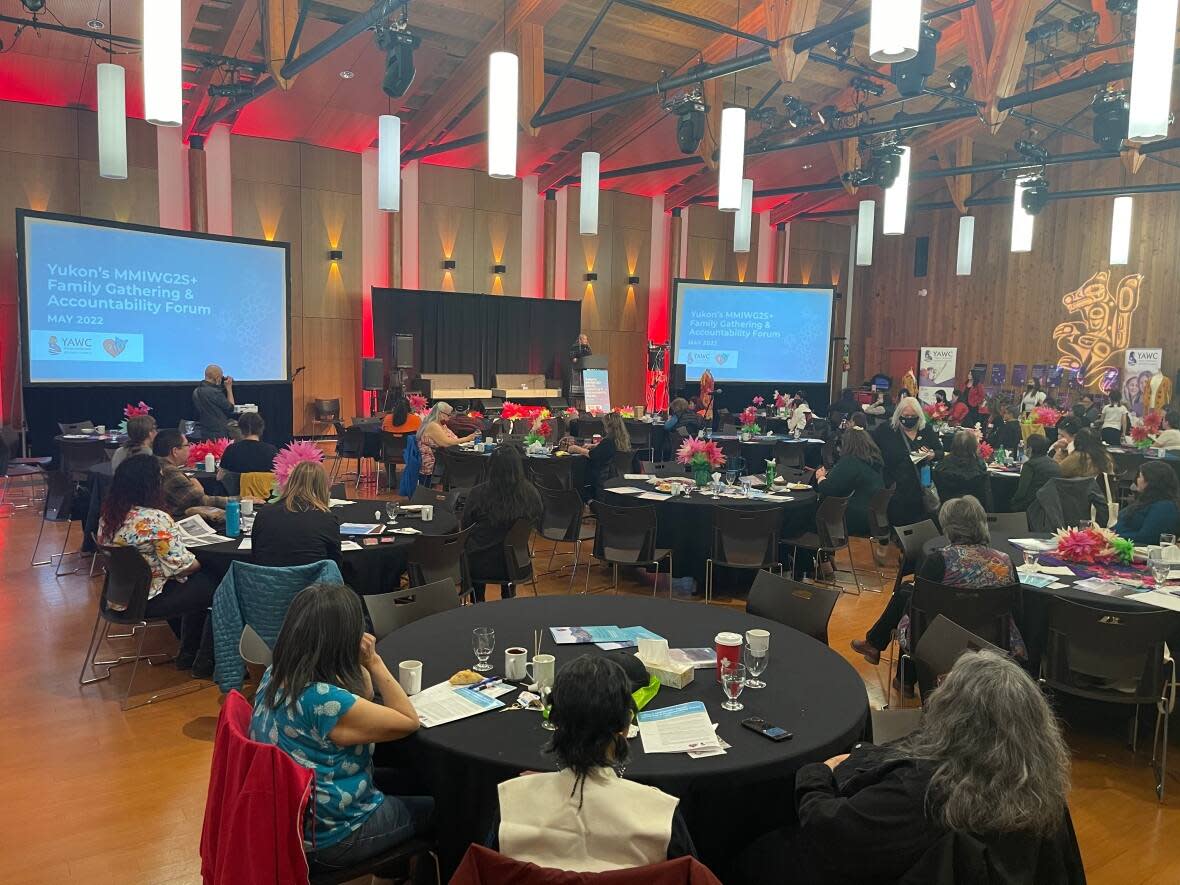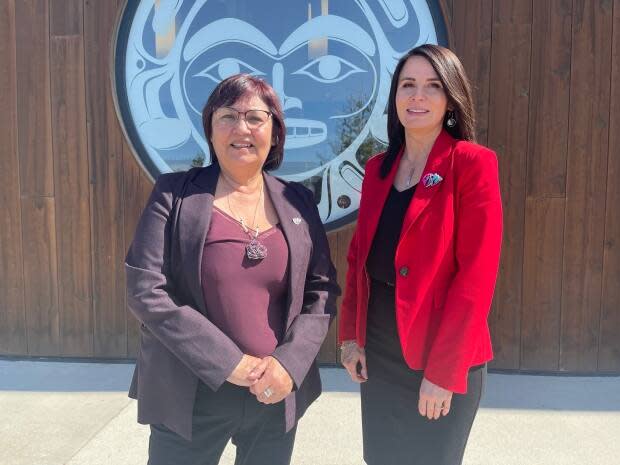'I worry about my safety all the time': MMIWG2S+ forum looks for more solutions

Carissa Waugh does not walk around her neighbourhood past 8 p.m. She refrains from keeping both ear buds in when she leaves the house. No matter what, she always tells her family and friends where she is going.
The Kwanlin Dün First Nation citizen walks through this world on high alert.
"I am a young, Indigenous woman," Waugh said. "My odds of being assaulted and/or murdered are much greater than some of my peers.
"I worry about my safety all the time, even when I'm at home with my front door locked."
Waugh spoke at a forum into missing and murdered Indigenous women, girls and two-spirit people on Thursday. The event, hosted at the Kwanlin Dün Cultural Centre, marked the first time families, survivors, community groups and leaders gathered under one roof to share experiences and brainstorm more solutions.
Doris Bill, co-chair of the Yukon Advisory Committee into MMWIG2S+ and Kwanlin Dün's chief, said she always drives her daughter and Waugh home – regardless of the time of night.
"Sometimes two, three in the morning I get out of bed, and I do it," she said, "because it's so important that our young women are safe. They shouldn't have to take those precautions, in their own community, just to be safe.
"That's why it is so important that we do this work, and we do it together."
10 priorities
Leaders like Bill said work to address the problem continues.
In 2020, Yukon became the first jurisdiction to release a strategy on the problem in response to the final report of the National Inquiry into Missing and Murdered Indigenous Women and Girls.
That work has evolved since then.
This year, there are 10 priorities, including earmarking more funding for community safety programs — at Kwanlin Dün, as well as across the territory — and establishing a trust fund for families and survivors. Ensuring that mines and major infrastructure projects implement zero tolerance policies toward all forms of racism and violence is another goal.

Jeanie McLean, another co-chair of the committee and the territorial minister responsible for the Women and Gender Equity Directorate, said the focus now is on implementation of the strategy, adding the forum will further inform that process.
"The intent is to bring people together to help them see themselves in the strategy," she said. "In the next short while, we'll complete the implementation plan, which will really define what we mean in each of the areas."
'Sometimes the only outlook for our young men is jail'
Peter Johnston, grand chief of the Council of Yukon First Nations, said men have a significant role to play, adding they need more help than they are being provided.
"Sometimes the only outlook for our young men is jail," he said.
"When I look down the streets of our community here in Whitehorse, I see a lot of our people still struggling from the devastating effects of government policy, residential school, the Indian Act.
"We have to be really honest in how we deal with this because it is a very significant element in this whole discussion."

